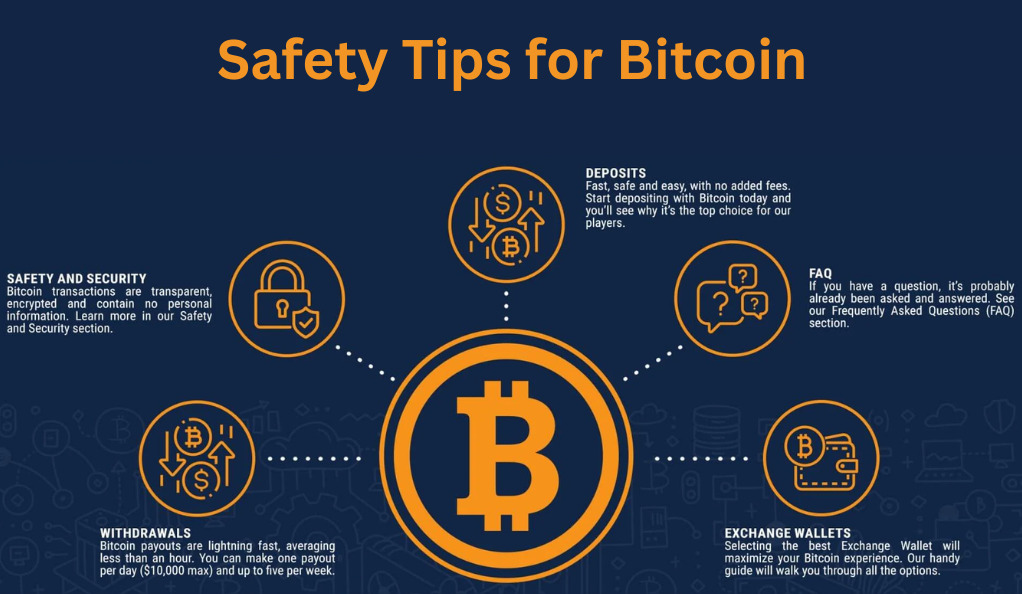Welcome to the transformative and often bewildering world of cryptocurrencies, where Bitcoin reigns supreme as the original and most well-known digital currency. If you’re a novice, this guide will provide foundational knowledge, explain how to acquire and store Bitcoin, and offer essential safety tips.
What is Bitcoin?
Bitcoin (BTC) is a decentralized digital currency, also referred to as a cryptocurrency. Unlike traditional currencies issued by governments and central banks, Bitcoin operates on a decentralized network of computers. This ensures that no single entity has control over the currency. The idea behind this is to give power back to the people and remove the need for intermediaries in financial transactions.
Moreover, every Bitcoin transaction is recorded on a public ledger called the blockchain. Once confirmed, these transactions are immutable, meaning they cannot be altered or deleted. The blockchain acts as a transparent and incorruptible record-keeping system, which has potential applications far beyond just cryptocurrencies. Additionally, there will only ever be 21 million Bitcoins. This scarcity, embedded into Bitcoin’s code, contrasts with traditional fiat currencies, which can be printed without a cap.

How Does Bitcoin Work?
At its core, Bitcoin operates through a combination of cryptographic keys and a decentralized network of computers. When you own Bitcoin, what you possess is a private key, a secret number that lets you spend that Bitcoin. This private key corresponds to a public key, which is like an address that others can see. Together, they facilitate Bitcoin transactions.
The true innovation of Bitcoin, however, lies in its decentralized nature. Transactions need to be confirmed by network participants called miners. These miners solve complex mathematical problems to validate and record transactions on the blockchain. In return for their work, they’re rewarded with newly minted Bitcoins, a process known as mining. This mechanism ensures that the network remains active, secure, and decentralized.
How to Buy Bitcoin?
For beginners, purchasing Bitcoin might seem daunting, but there are several straightforward methods. The most common avenue is through cryptocurrency exchanges. Platforms like Coinbase, Binance, and Kraken offer a marketplace where users can buy, sell, and trade Bitcoin. To start, you’d typically sign up, undergo a verification process, deposit funds, and then purchase Bitcoin.
Alternatively, Bitcoin ATMs have started to become prevalent in many cities. These function much like regular ATMs but for buying and occasionally selling Bitcoin. Pop in cash or your card, and you receive Bitcoin in return. Another option is Peer-to-Peer (P2P) platforms like LocalBitcoins. These websites connect buyers and sellers directly, allowing for more personalized transactions, often with various payment methods.
Storing Your Bitcoin
Once you own Bitcoin, safe storage becomes paramount. Hot wallets, which are digital wallets connected to the internet, offer convenience at the expense of increased risk. They are suitable for small amounts and frequent transactions. Examples include mobile apps like Electrum and wallets provided by exchanges.
On the other hand, cold wallets are offline storage options. These are akin to digital vaults, keeping your Bitcoin safe from online threats. Hardware wallets, like the Ledger Nano S and Trezor, are physical devices that securely store private keys. They only connect online when making transactions, reducing exposure. Paper wallets, another form of cold storage, involve printing out your cryptographic keys and keeping them in a secure place.
Safety Tips for Bitcoin Beginners
With the digital nature of Bitcoin comes an array of potential vulnerabilities. The first step to safety is safeguarding your private key. Consider it your Bitcoin lifeline. If someone acquires your private key, they have access to your Bitcoin. Never share it, and store it securely.
Given the multitude of platforms and services around Bitcoin, always use strong, unique passwords. These passwords should be difficult to guess and not recycled from other online accounts. Additionally, enabling two-factor authentication (2FA) on accounts provides an extra layer of security. Always remain vigilant against phishing attempts. Scammers might send emails or messages mimicking trusted entities to steal your credentials. Lastly, ensure your digital environment is secure. Regular backups of your wallet and timely software updates are crucial.

Conclusion
Entering the world of Bitcoin is both exciting and challenging. As the pioneering digital currency, Bitcoin offers a taste of financial self-sovereignty. But with it comes the onus of self-security. Equip yourself with knowledge, practice safe habits, and you’ll be well on your way in this digital frontier.
FAQs
Bitcoin’s price is determined by supply and demand dynamics in the market. Various factors, including news events, technological advancements, market sentiment, and macroeconomic indicators, can influence its value.
Investment decisions should be based on research and personal financial situations. While Bitcoin has experienced significant growth, it remains highly volatile. It’s always advisable to consult with financial experts before making investment decisions.
Yes, you can buy fractions of a Bitcoin. The smallest unit, called a “satoshi,” represents 0.00000001 of a Bitcoin.
Bitcoin transactions are pseudonymous. While transaction details are public on the blockchain, the identities of the people involved are not directly tied to their Bitcoin addresses. However, with sophisticated analysis, patterns can be identified, potentially linking individuals to their transactions.
If you lose your private key, you lose access to your Bitcoin, and it becomes irretrievable. This emphasizes the importance of keeping backup copies of your key in secure locations.